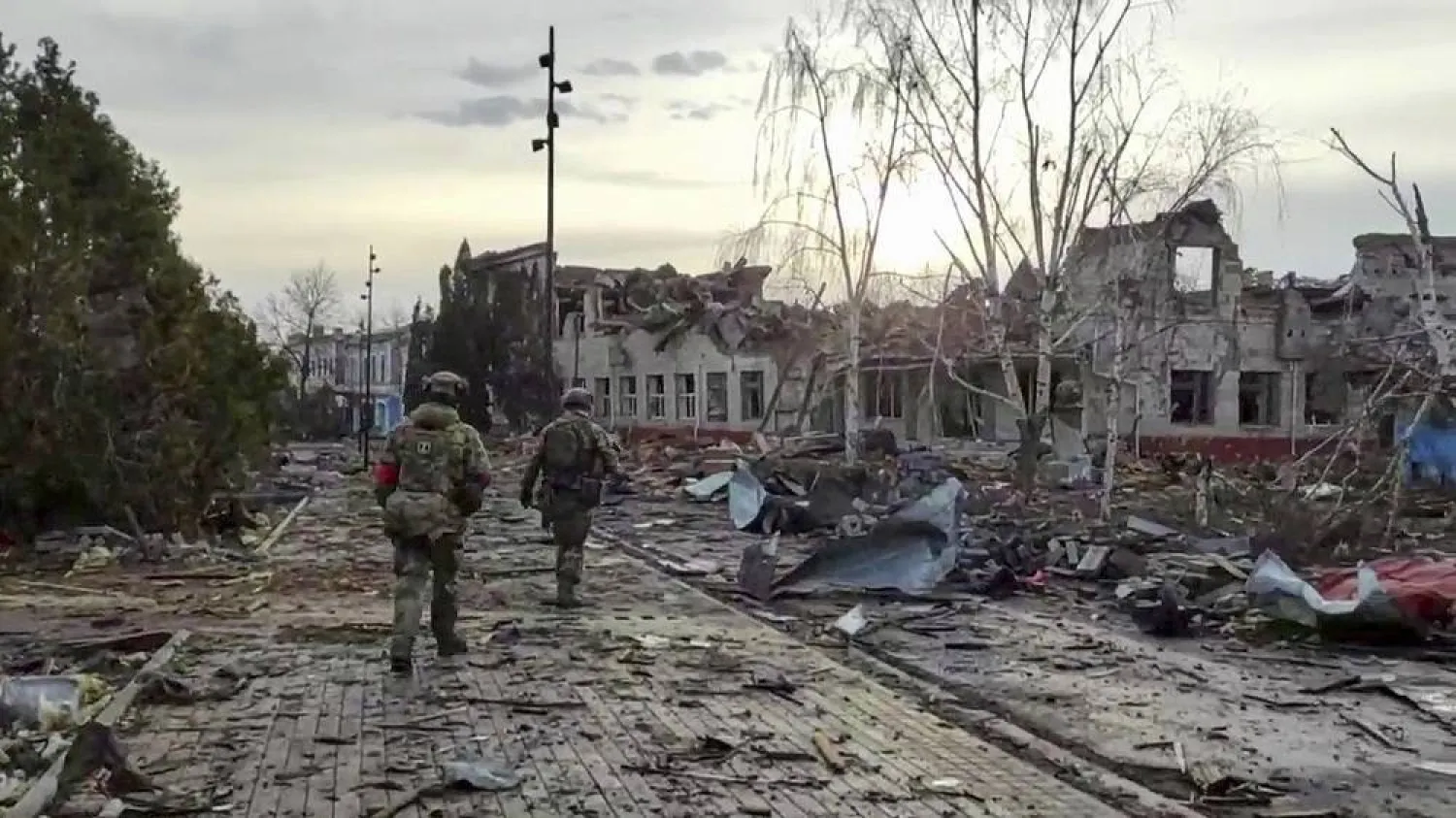Ukraine and Russia accused one another on Wednesday of flouting a truce on energy strikes brokered by the United States, and the European Union said it would not meet conditions set by Russia for a planned ceasefire in the Black Sea.
The United States announced separate agreements with Ukraine and Russia on Tuesday to pause their strikes in the Black Sea and against each other's energy targets, but the rhetoric from Moscow and Kyiv suggested they remained far apart.
Ukraine's president, Volodymyr Zelenskiy, said the US side told Kyiv the deals were effective as soon as they were announced. But the Kremlin said the Black Sea agreement would not enter force until a sanctioned Russian state bank was reconnected to the international payment system. Europe said that would not happen until a Russian withdrawal from Ukraine.
The Kremlin contends it has already been implementing a pause on energy attacks since March 18, though a senior Ukrainian presidential official said Russia had attacked eight Ukrainian energy facilities since that date.
On paper, the agreements are a tangible step towards a ceasefire after Russia launched its February 2022 invasion, unleashing the biggest conflict in Europe since World War Two that rages on along a 1,000-km (600-mile) front line.
Led by Donald Trump, who wants a quick peace, the United States on Tuesday published two separate joint statements with Moscow and Kyiv outlining the deals, but neither document set out a clear timeline for their implementation.
Overnight, Russia said it had taken down nine drones, including two over the Black Sea. It also said Ukraine tried to attack a gas storage facility in Russian-occupied Crimea and energy infrastructure in Russia's Kursk and Bryansk regions. Ukraine said it conducted no such strikes.
Ukraine's military reported 117 Russian drone attacks overnight. Local officials said the city of Kryvyi Rih had been hit by the biggest drone attack it has faced yet.
Zelenskiy called on the United States to further sanction Moscow, which he said was clearly not pursuing a "real peace" after the latest night of Russian drone attacks.
"Launching such large-scale attacks after ceasefire negotiations is a clear signal to the whole world that Moscow is not going to pursue real peace," Zelenskiy wrote on X.
ACTIONS NOT WORDS
Diplomats have told Reuters that most of the curbs the Kremlin says should be lifted before a Black Sea truce comes into effect relate to European Union sanctions and restrictions.
The EU said it was not targeting trade in food, grain or fertilizers in any way and made clear it would not budge on sanctions while Russian forces remained in Ukraine.
"The end of the Russian unprovoked and unjustified aggression in Ukraine and unconditional withdrawal of all Russian military forces from the entire territory of Ukraine would be one of the main preconditions to amend or lift sanctions," a spokesperson for the EU's executive commission said.
European nations trying to create security arrangements for Ukraine are shifting from sending troops to alternative ways of protecting Ukraine's skies, seas and borders as they face political and logistical constraints, officials told Reuters.
A senior European defense official said everything would depend on prospects for a ceasefire, adding that he was not optimistic.
Nightly Russian drone attacks have been a feature of life in Ukrainian cities for many months. So have power outages as missiles have hammered the power grid, although Russian attacks have targeted gas facilities more recently. Kyiv has used drones to hit Russian oil facilities to strike back at its larger foe.
Zelenskiy said: "Everyone who was affected must be given assistance. But there must also be clear pressure and strong action from the world on Russia – more pressure, more sanctions from the United States – to stop Russian strikes."
The Ukrainian statements did not say that Russia had hit energy infrastructure with its latest attack.
At least 15 explosions detonated in Zelenskiy's hometown of Kryvyi Rih overnight during a Russian drone attack, though no one was killed or injured, according to Oleksandr Vilkul, head of the military administration.
"Apparently, this is how the occupiers 'want peace'," he said.
Seven Russian drones were shot down over the southern region of Mykolaiv, whose port provides access to the Black Sea and has been closed since Russia's full-scale invasion, the governor said.
In the city of Okhtyrka in the border region of Sumy, the local governor said Russian drones damaged two apartment buildings, an administrative building and businesses.
Reuters could not independently verify the reports from either side about the various attacks.









